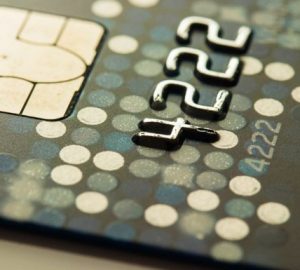The CollegeSTEPS® 7-Day Credit Boot Camp

Get your credit into shape without a trip to the gym. Give your credit confidence some muscle with this seven-day challenge.
Having good credit is key to helping you reach some of life’s biggest financial goals. From being able to pay for school to getting approval for a home mortgage, credit can make your financial life easier. But, to build good credit, you have to understand it. This self-guided boot camp helps you learn important credit skills — including credit basics, establishing credit, and using credit — that you’ll need in college and beyond.
Join the challenge by completing one online task per day for the next seven days. Each task should only take about 30 minutes or less, and by the end of the week, you’ll be well on your way to credit confidence.

The basics of credit
Day 1: What is credit?
Day 1 Challenge: Learn how credit works by watching the video: “Why is credit important?”
Credit is the amount of money a lender — like a bank or credit card company — is willing to give you now with the promise that you’ll pay it back later, usually with interest and fees in some cases. For example, if you’ve dreamed of turning your side gig into a full-time job, a loan could help you get your business started. You’ll just need to pay the total back in full, plus interest, over time.
Credit goes beyond cards: It can also include, but definitely isn’t limited to, installment payments for items like phones or car payments, or borrowing with student loans. It’s better to start building credit as soon as you can. And when you start as a student, you can build a credit history and create better habits that will prepare you to finance the things you need and want later on.
Day 2: Know your credit score and check your credit report
Day 2 Challenge: Get your FICO Credit Score1. Then, check your credit report through AnnualCreditReport.com.
Your credit score is a number from 300 to 850 used by financial institutions to determine your creditworthiness, aka how likely you are to repay money that you borrow or owe. You can raise your credit score based on how well you pay back debt. Your credit report is a record of your credit history and contains data like your current and past addresses, what kinds of credit you have, and whether or not you’ve made payments on time.
You can get a free copy of your credit report once per year from each of the three major credit bureaus: Experian, TransUnion, and Equifax. Requesting each of the three reports every four months — for example, getting your credit report from Experian in January, TransUnion in May, and Equifax in September — can allow you to check on your status throughout the year. You can also pay to get a credit report more than once per year.
It’s good to know your credit score and the most recent activity on your credit report while you’re in college. These things can affect whether you’re approved for an apartment lease or student loans, and regularly checking up on your credit can let you know if you need to make improvements. You can improve your credit score by making payments on time and paying off debt as quickly as you can.
Day 3: Three ways credit can help students
Day 3 Challenge: Write down three future goals that will require a good credit history.
If you want to borrow money from someone other than family or friends, you need a credit history. Starting to build your credit history as a student can help you kickstart a secure financial future. As a student, you may need a credit history to help you:
- Get a job
- Rent an apartment
- Open a credit card
Employers, landlords, and banks alike look at your credit history to make sure you’re financially responsible. After graduation, you will need a credit history to purchase a home or car without a parent or guardian as a co-signer. Here are some tips for building credit as a student.
A note to screen reader users: Depending on what browser you’re using, you may experience that during the quiz, your screen reader becomes refocused outside of the quiz frame. If this happens, simply navigate back to the quiz to continue. We apologize for any inconvenience.
A note to screen reader users: Depending on what browser you’re using, you may experience that during the quiz, your screen reader becomes refocused outside of the quiz frame. If this happens, simply navigate back to the quiz to continue. We apologize for any inconvenience.

Building credit
Day 4: Credit Cards 101
Day 4 Challenge: Read “What to consider when getting a credit card.”
Having a credit card can be convenient and financially empowering. Using your credit card responsibly can offer you several benefits for your financial future, including helping you build a credit history that may help you achieve future goals. Certain credit cards may also enable you to earn cash back on eligible purchases or travel rewards.
There are many options available to you, so it’s important to do some research before you choose which card to sign up for. Consider why you want a credit card, what kind of card benefits best fit your needs, and be sure you’ll be able to make payments on time. You’ll find even more tips in today’s challenge.
Day 5: How to build and keep your credit
Day 5 Challenge: Watch the video “How to build good credit.”
Avoiding credit missteps is key to building and maintaining credit. Credit “don’ts” may include paying your bills late, applying for credit too often, closing longstanding credit accounts, and getting close to or reaching your credit limits. And if you’ve co-signed on someone else’s credit account, like a sibling’s or significant other’s, your credit can be negatively impacted if the other person fails to make a payment. This is even true if someone has stolen your identity and started racking up charges fraudulently — your credit is what’s affected.
Credit “do’s,” however, can help you improve your credit score. These actions include paying your bills on time (at least the minimum!), keeping your balances low (experts generally advise to stay under 30% of your available credit lines), checking your credit report regularly for any inaccurate information, and addressing problems quickly. Taking positive actions like these is particularly important when you’re just beginning to build credit — and your credit habits.
A note to screen reader users: Depending on what browser you’re using, you may experience that during the quiz, your screen reader becomes refocused outside of the quiz frame. If this happens, simply navigate back to the quiz to continue. We apologize for any inconvenience.
A note to screen reader users: Depending on what browser you’re using, you may experience that during the quiz, your screen reader becomes refocused outside of the quiz frame. If this happens, simply navigate back to the quiz to continue. We apologize for any inconvenience.

Using credit
Day 6: Learn about debt-to-income (DTI) ratio
Day 6 Challenge: If you have a monthly income, determine your debt-to-income ratio with this calculator.
This topic may be a little advanced, so let’s simplify. Your debt-to-income ratio (DTI) compares how much you owe each month to how much you earn. It’s another tool lenders use to determine how creditworthy you are, and a lower ratio (35% or lower) is generally considered better.
For a good DTI ratio, you should earn more than you owe. This signals to lenders that you are financially responsible and that they will assume less risk lending you money. When you’re first building your credit, you may not be earning much money. However, the concept and that 35% target doesn’t change, no matter how much money you earn. It will still apply down the road, when you’re earning a regular paycheck at your full-time job.
Day 7: Credit beyond college: What to know
Day 7 Challenge: Read “Strategic credit use: When is borrowing the right move?”
By now, you understand why credit is important as a student, but what about after graduation? With good credit, you could have a better chance of being approved for loans when you’re ready to buy a car or house. You could receive lower interest rates when you borrow, saving you money long-term. You could even borrow more if your income increases because you could have access to higher credit limits.
Now, you’re almost finished with the seven-day boot camp! Put your credit to work and see what you’ve learned.
A note to screen reader users: Depending on what browser you’re using, you may experience that during the quiz, your screen reader becomes refocused outside of the quiz frame. If this happens, simply navigate back to the quiz to continue. We apologize for any inconvenience.
A note to screen reader users: Depending on what browser you’re using, you may experience that during the quiz, your screen reader becomes refocused outside of the quiz frame. If this happens, simply navigate back to the quiz to continue. We apologize for any inconvenience.
Congratulations! You’ve completed the CollegeSTEPS 7-Day Credit Boot Camp, and you’re well on your way to credit confidence.
For more credit resources, check out Understanding Credit.




